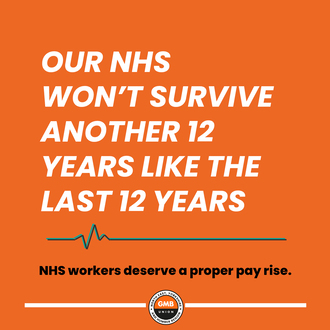-
Stop the cuts to Support staff wagesSchools Support staff are vital to the running of our Schools and the education our Children. We believe the success of our School and the education they provide will be badly affected by these proposals. School Support staff are some of the lowest paid staff in Schools and proposals to cut their wages in the middle of a cost of living crisis is harsh and wrong.92 of 100 SignaturesCreated by Katherine Mitchell
-
Support Liverpool DockersMDHC, is part of Peel Ports and is owned by the Peel Group, based in the Isle of Man tax haven. Peel Ports recently reported a record pre-tax profit of £141million, which was greater than the entire wage bill for the year. Peel Ports has paid out more than £300 million to shareholders, in dividends over the last five years. The Liverpool port on its own made the company more than £30 million in profits in 2021. This is a company that can clearly afford to give its workers a fair pay rise in line with inflation. We ask MDHC to: • Return to negotiations to deliver a fair pay rise in line with inflation • Honour the 2021 pay agreement •. Remove the threat of unfair redundancies10,536 of 15,000 SignaturesCreated by Liverpool Dockers Community Solidarity Group
-
🚑 Good will won’t pay the bills - Give our NHS heroes a proper pay rise 🚨During the pandemic paramedics, nurses and hospital workers worked to save thousands of lives. People clapped hands and bashed pans weekly to celebrate their contribution. It’s time to make sure they can pay the bills over the winter by giving a decent pay rise.87 of 100 SignaturesCreated by Craig Dawson

-
Save Hackney Library Services - stop the cuts!Help protect staff jobs and our libraries for current & future generations. We need at least 750 signatures from people who work, live or study in Hackney to be considered by the full council at Hackney Town Hall in November!3,207 of 4,000 SignaturesCreated by Hackney UNISON branch

-
Pay Parity for OCS Staff!OCS staff at Lancashire and South Cumbria NHS Trust do the same job as their NHS colleagues but their terms and conditions are substantially worse. They don't get enhancements or overtime rates. Sign this letter now to send a message to the trust board that they deserve full parity with NHS staff.12 of 100 Signatures
-
Scottish Adult Social Care in crisis - DEMAND ACTION NOWUnite the Union in Scotland undertook the biggest exercise in getting workers views from the sector on how a potential National Care Service in Scotland should work from them. From that survey, it was clear that the issues that were being experienced by a majority of workers couldn't wait until the creation of a National Care Service and had to be challenged immediately.6,494 of 7,000 SignaturesCreated by Paul Rolwich
-
Take Merseyside's Buses Back Under Public ControlOur bus services are broken. But they could be world-class. The Liverpool City Region Metro Mayor has the power to fix our buses by bringing them back into public control. Right now, private bus companies do what they like, dictating prices, routes, and timetables. You’ve seen the results: catastrophic cuts, skyrocketing fares, and buses that never turn up on time. It’s not just a bad deal for passengers — drivers are overworked and underpaid, leaving the bus companies struggling to run a reliable service as staff shortages bite. No wonder our drivers are sometimes forced to go on strike! Public control would mean affordable fares and more frequent buses. All with a smart ticket where daily spending is capped. And why not? It’s what they have in London! It would also put staff pay and conditions in public control, delivering a better deal for drivers and more reliable buses for you. Local politicians are there to represent YOU! Let them know you think buses should be in public control.1,745 of 2,000 SignaturesCreated by Better Buses

-
Raise the minimum wage to £15 an hourEvery worker should be able to afford a decent standard of living. But millions of low-paid workers live wage packet to wage packet, struggling to get by – and they are now being pushed to the brink by eye-watering bills and soaring prices. For too long workers have been told that businesses can't afford to pay them more. But again and again the evidence has shown that firms are still making profits and increasing jobs – we can afford higher wages. And higher wages are good for the economy – more money in the pockets of working people means more spend on our high streets. It’s time to put an end to low-pay Britain.39,514 of 40,000 Signatures
-
Hinduja Global Services: End low pay for Liverpool's outsourced Home Office staffMembers of PCS union working for Hinduja Global Solutions (HGS) in Liverpool are taking strike action over pay and conditions. Can you support their campaign? The Disclosure & Barring Service (DBS) helps employers make safer recruitment decisions by processing and issuing record checks for people working with children and adults in vulnerable or sensitive situations. HGS deliver a contract for DBS running the contact centre and back-office functions. Highly rated, poorly paid HGS staff provide an essential service, dealing with around a million calls from the public, and 6 million DBS certificates every year. As key workers they worked throughout the COVID lockdowns, helping other key services keep running safely. But now their employer is offering only a meagre pay award, taking wages just above the minimum wage. HGS are also refusing to improve on other minimum legal terms and conditions. It's not like they can't afford to. Internationally, HGS are a hugely profitable firm, and their owner tops the rich list with a personal wealth of £24.5bn. When prices are rising so quickly, HGS' refusal to agree a fair pay rise will cause real hardship for their staff. One of our members said “We don’t want to disrupt the service we provide to the public but we want to be paid a fair wage to get by on. With double digit inflation I’m finding it really difficult to pay for food and pay the bills. While the company are making record profits and the owner is the richest person in the country, this is not right.” Can you help raise the pressure on HGS to come back to the table and do right by our members? Please send an email to the company's UK CEO now.1,345 of 2,000 SignaturesCreated by PCS North West
-
For the sacked! Fair Ferries campaign to end exploitation at seaWe need a new deal for all workers. We demand stronger collective bargaining rights and an end to exploitative employment practices like fire and rehire.1,545 of 2,000 SignaturesCreated by Helen Kelly
-
Save Doncaster Sheffield AirportDoncaster Sheffield Airport (DSA) provides a vital transport and logistics hub. It's loss would be highly detrimental to the local economy and result in the loss of good unionised jobs. In the middle of a cost-of-living crisis the last thing our members and neighbouring communities in Doncaster and the surrounding areas need is uncertainty about their jobs and futures. Peel Group's decision will likely see a slow winding down of the airport over the next few months until its final closure date in October.14,680 of 15,000 SignaturesCreated by Craig Dawson

-
Thomas Swan give your hard workers a pay rise!Workers at Thomas Swan in Consett have faced attacks on their wages including term's and conditions for a number of years. Thomas Swan employees worked throughout the pandemic placing their loved ones at risk in order to maintain the success of the company. This year with inflation at an all time high and workers struggling to support their families, Thomas Swan have turned their backs! This not only places strain on the workers and their families but the local economy and the future of decent paid jobs in Consett.242 of 300 SignaturesCreated by Laura Maughan













